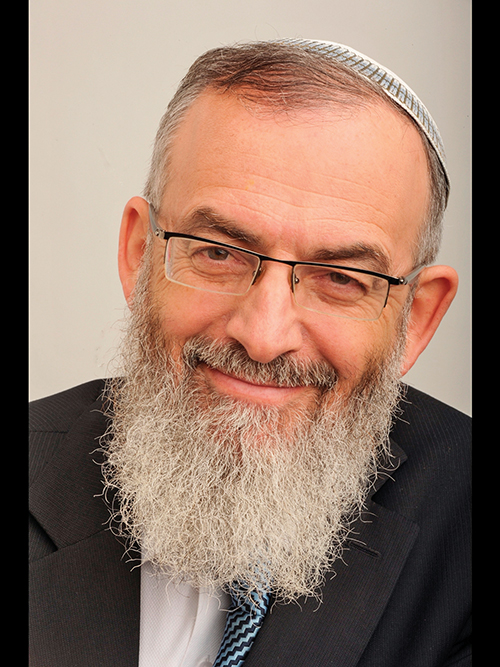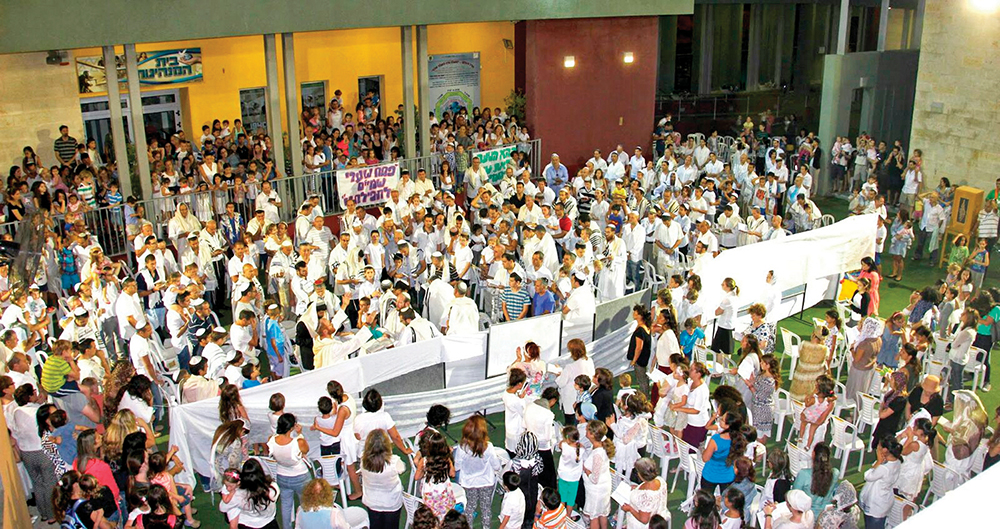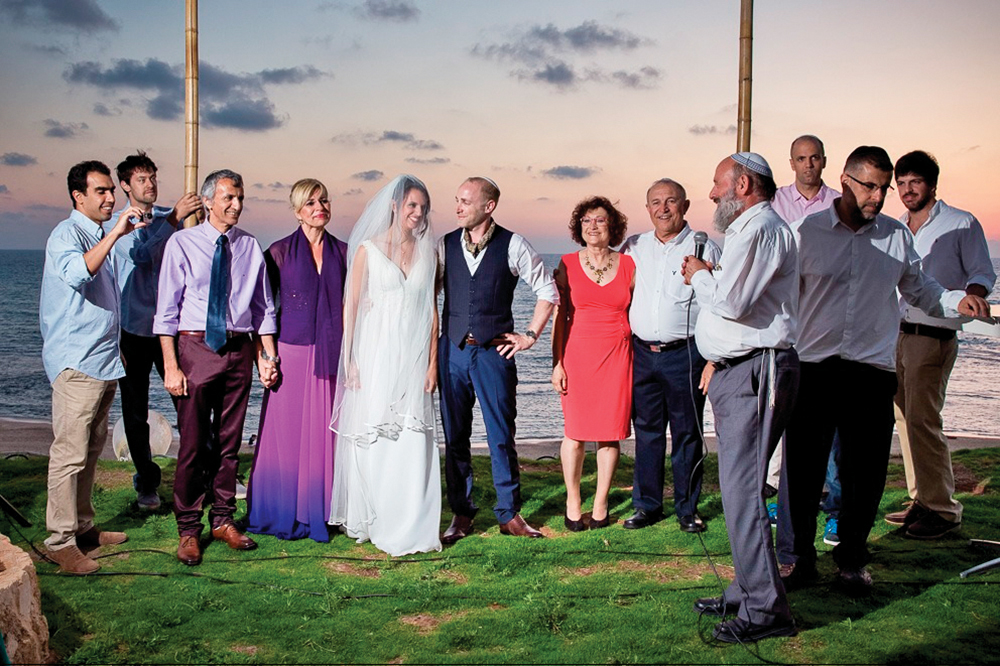
More than any other, the one word used to describe what has kept Israel and the Jewish people strong in the face of the unprecedented physical and verbal attacks since October 7 has been achdut or unity. Some may even consider it our secret weapon.
There is an organization in Israel that has known the importance of the concept behind the word for decades, creating programs in the name of Jewish unity since 1995. Tzohar, a nonprofit with over 1,500 volunteers, including 600 Religious Zionist/Modern Orthodox rabbis, was established in the wake of the divisiveness created by the murder of Prime Minister Yitzhak Rabin in 1995. Its mission is to inspire and to maintain Jewish identity in Israel and bridge the divide between religious and secular Jews.
Rav David Stav, chairman and one of Tzohar’s founders, will be the scholar-in-residence at Bnai Yeshurun in Teaneck May 31-June 1, sharing divrei Torah and words of chizuk.
Tzohar is focused on four critical areas. Its Jewish Marriage Initiative is aimed primarily at secular couples who sometimes view the traditional Jewish wedding ceremony as too stifling and ritualistic. This initiative is aimed at changing that mindset. The goal is for the process to begin with a user-friendly marriage registration to overcome much of the bureaucracy and to culminate in a wedding ceremony officiated by a sensitive Tzohar rabbi who can help infuse it with relevance, while at the same time incorporating the couple’s wishes. The result is the celebration of a traditional halachic wedding in a warm, meaningful environment.

Tzohar’s holiday programs seek to maintain Jewish identity. A large number of secular Jews feel disconnected from the meaningful traditions of Jewish festivals, with the synagogue experience foreign to them. Tzohar runs warm holiday programs throughout Israel, using easy-to-understand siddurim and incorporating discussions and songs on the content and meaning of the festivals. It has drawn hundreds of thousands of non-observant Jews into the spirit of major Jewish festivals. Bar/bat mitzvah classes are conducted with the same philosophy in mind.
Shorashim, or roots, tackles the issue of Jews, mainly from the former Soviet Union, who have been stymied and frustrated in their attempts to prove their Jewishness because of lost or misfiled records. Tzohar’s forensic unit aims to rectify this problem by obtaining necessary documentation, enabling those individuals to feel they fully belong. On average, for every one case where Jewish identity is clarified by Shorashim, five additional family-related cases are cleared as well.
Finally, there is their kashrut program. Tzohar pays the mashgichim with the goal of expanding the number of establishments certified as kosher without sacrificing kashrut standards. This, more than any other effort of Tzohar, has met with resistance because of the entrenched nature of the Israeli rabbinate as a governing body. However, hundreds of additional establishments are now kosher because of the efforts of Tzohar.
The Jewish Link forwarded questions to Rav Stav in Israel to gain further insight into the philosophy and goals of the organization. He explained that the basis of much of the division between the religious and secular over the years has been ignorance, and, as Religious Zionist rabbis, Tzohar is committed to changing that dynamic.
“We knew something had to be done to ensure that all Israeli Jews were reminded of the common traditions that have united us in the past,” the rabbi said. “We firmly believe that Israeli Jews want to find beauty in their Judaism, but so often there are bureaucratic or societal factors that get in the way, and that is nothing less than a tragedy which truly threatens the Jewish future of our state.”
When asked about the biggest challenges Tzohar must confront, Rav Stav shared: “Judaism in Israel is often perceived as being connected to political forces, specifically ones that are not popular. Our challenge is to remind people that Judaism isn’t about allegiance to a political party. The beauty of Jewish traditions must be independent of any political influences.”
Among the largest achievements of the organization was the passage of the “Tzohar bill,” which allows for flexibility by couples in choosing the rabbinate and type of chuppah they want, while at the same time maintaining the standards of a halachic marriage.
Rav Stav believes that Tzohar is becoming the address for every Israeli who wants Yiddishkeit in a personal life cycle event or year round in a “friendly, noncorrosive way.” Tzohar “has become synonymous with a moral, halachic and respectful Judaism in a way that allows for comfort.”
The numbers tell the story. For the full year 2023, over 3,600 couples were married through Tzohar; over 22,000 Jewish identities were confirmed; over 750 families celebrated bar/bat mitzvahs; 79,000 participated in the organization’s Yom Kippur programs; and 65,000 participated in their Purim readings. Additionally, over 1,000 restaurants have been granted kashrut supervision and the organization has hosted 650 Kabbalat Shabbat programs across 78 communities.

Their newest initiative is Mashav, a content channel that has received an impressive 2.1 million views. When asked about the program, Rav Stav wrote: “The content of Mashav is in line with the vision of making Judaism accessible and relatable to every possible Israeli Jew. It is inspired by the idea that Jewish thought doesn’t need to be academic or heavy, but truly has a place in every aspect of our daily lives. It can be meaningful and enjoyable at the same time.”
The Jewish Link sat down with Rabbi Yehoshua Grunstein, Tzohar’s director of development for North America, during his last visit to the U.S. in early April for additional insights. He explained that Mashav reflects the philosophy of Tzohar as it attempts to expose the wider Israeli population to the beauty of Judaism. Rather than only having rabbis share their thoughts, the channel invites celebrities to explain what resonates with them. In this way the secular Jew is hearing from someone he/she is more likely to identify with and is more likely to return for additional content on Judaism.
“Judaism doesn’t always belong to the religious,” Rabbi Grunstein noted. He added that a survey had been conducted prior to the debut of Mashav, asking respondents what they expected from Tzohar. It confirmed that “people are looking for meaning and content in their lives.” He believes if approached correctly they can find that significance in Torah. He added that everyone is being affected by the war in Gaza, and at times require physical assistance and psychological help as they seek meaning to make sense of it all.
Rav Stav addressed this very issue when he summarized: “Our primary objective is to instill pride within every Israeli Jew in their Jewish identity. This is why we have chosen to rally around programs that all Israelis recognize as holy, like marriage and holidays. But we also work towards programs that highlight that Jewish practice doesn’t have to be divisive.”
For further information, visit the organization’s website, https://tzohar-eng.org. Rabbi Grunstein can be reached at nadirector@tzohar.org.il
Robert Isler is a marketing research analyst and freelance writer who specializes in Jewish issues. He can be reached at robertisler23@gmail.com









